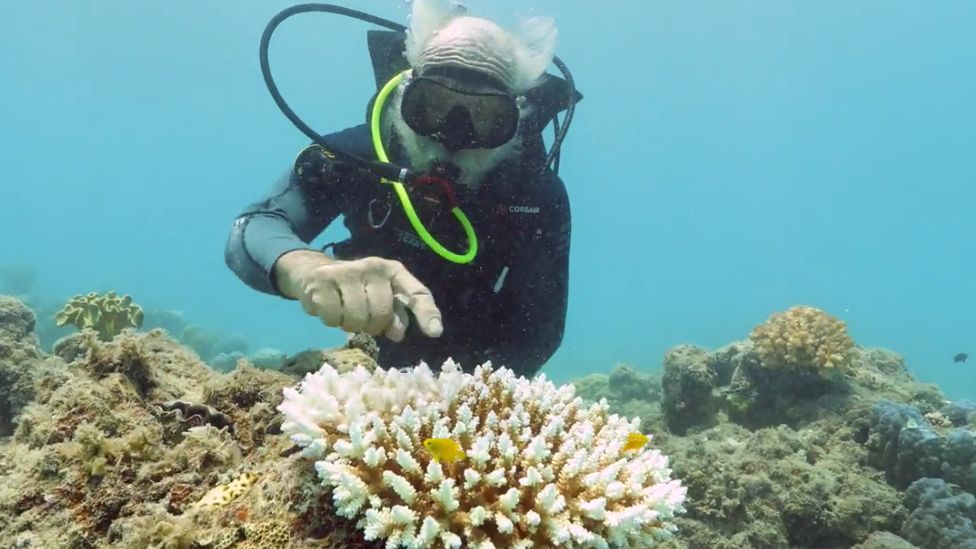Great Barrier Reef suffers third mass bleaching in five years
- Published
- comments

The world's largest reef system has suffered another mass bleaching event
Australia's Great Barrier Reef has suffered another mass bleaching event - the third in just five years.
Warmer sea temperatures - particularly in February - are feared to have caused huge coral loss across the world's largest reef system.
Scientists say they have detected widespread bleaching, including extensive patches of severe damage. But they have also found healthy pockets.
Two-thirds of the reef was damaged by similar events in 2016 and 2017.
The reef system, which covers over 2,300km (1,400 miles), is a World Heritage site recognised for its "enormous scientific and intrinsic importance".
Last year, Australia was forced to downgrade its five-year reef outlook from poor to very poor due to the impact of human-induced climate change.
On Thursday, the Great Barrier Reef Marine Park Authority said its latest aerial surveys had shown that the severity of bleaching varied across the reef.
But it said more areas had been damaged than in previous events.
"The reef had only just begun recovering from impacts in 2016 and 2017 and now we have a third event," chief scientist David Wachenfeld told the BBC.
"Climate change is making the extreme events that drive those impacts both more severe and more frequent, so the damage in an event is worse."
Allow Twitter content?
This article contains content provided by Twitter. We ask for your permission before anything is loaded, as they may be using cookies and other technologies. You may want to read Twitter’s cookie policy, external and privacy policy, external before accepting. To view this content choose ‘accept and continue’.
The earlier events hit two-thirds of the reef system, wiping out coral populations and destroying habitats for other sea life.
But Dr Wachenfeld said some key reefs for tourism - in the northern and central regions - had been only "moderately bleached" this year. This meant coral there would probably recover, he added.
"The reef is still a vibrant, dynamic system but overall, with every one of these successive events, the reef is more damaged than previously," he said.
"We need to take these events as global calls for the strongest possible action in climate change," he said.
Global temperatures have already risen about 1C since pre-industrial times. The UN has warned that if temperatures rise by 1.5C, 90% of the world's corals will be wiped out.
You may also be interested in...
How the Great Barrier Reef was saved in the 1960s
- Published30 August 2019
- Published4 April 2019
- Published10 August 2018
- Published29 April 2018
- Published4 January 2018